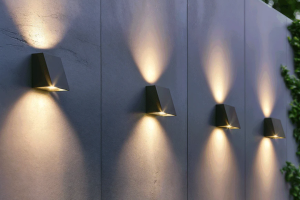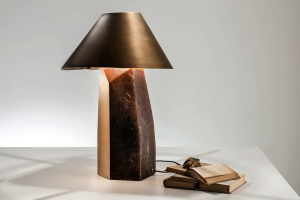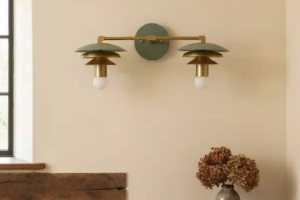Introduction
Lamp shades are an essential component of any lighting fixture as they not only enhance the overall aesthetics but also serve the functional purpose of diffusing light. However, traditional materials like fabric and paper come with certain limitations, like being susceptible to damage and wear and tear. This is where nuts prove to be an effective replacement for conventional materials. In this article, we will explore the beauty and functionality of using nuts for lamp shades.
What Makes Nuts Ideal for Lamp Shades?
Nuts, which are typically used in furniture and construction, are known for their durability and strength. They are available in a variety of shapes and sizes, making them versatile enough to be used in different types of lamp shades. Nuts can be easily fitted onto the base of a lamp, and they include a hook-and-eye mechanism that makes them easy to remove for maintenance.
Moreover, when used as a material for lamp shades, nuts bring a unique warmth and texture to space that cannot be achieved with paper or fabric. The surface of nuts can be smooth, rustic, or shimmery, depending on the type of nut used.
Types of Nuts for Lamp Shades
There are various types of nuts that can be used for lamp shades, including:
Walnuts
Walnuts are a popular choice for lamp shades because of their deep brown color and rustic texture. They are also relatively inexpensive and readily available.
Acorns
Acorns are smaller than traditional nuts but can be used to create intricate designs on lamp shades. Their light brown color provides a warm and cozy ambiance.
Chestnuts
Chestnuts are known for their unique shape and texture. When used for lamp shades, they can create a beautiful pattern of shadows on surrounding surfaces.
Design Ideas for Nuts Lamp Shades
Nuts on the Exterior
One of the most common designs for nut lamp shades is to have a covering layer of nuts on the outside. This can be done by gluing the nuts on an existing lamp shade, or drilling holes in a wooden base and fitting nuts through the holes.
Textured Base
Nuts can be stacked and layered to create a textured base for the lampshade. This will give the lamp a rustic and earthy feeling, which is perfect for rooms with wooden furniture.
Patterned Cutouts
Using a saw or drill, intricate patterns can be carved into the nuts to create unique designs that will project beautiful patterns of light and shadow onto surrounding surfaces.
Conclusion
In conclusion, nut lamp shades are an excellent alternative to traditional lamp shade materials. They not only provide a unique look but also offer durability and versatility that cannot be achieved with other materials. With the right design and creativity, nut lamp shades can add warmth and character to any living space. So why not try incorporating this innovative design into your home décor?



More Posts
Stunning Vintage Opaline Lights: Illuminating Homes with Timeless Elegance
Bringing Versatility to Light: Exploring the Benefits of Dual Light Technology
Shining Light on E14 Bulbs: The Ultimate Guide to Understanding and Using Them